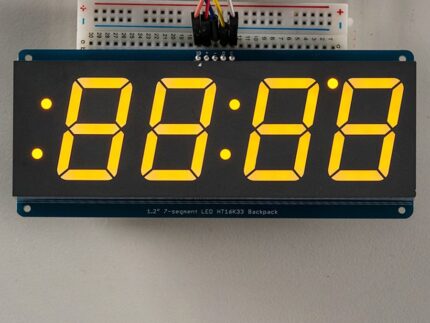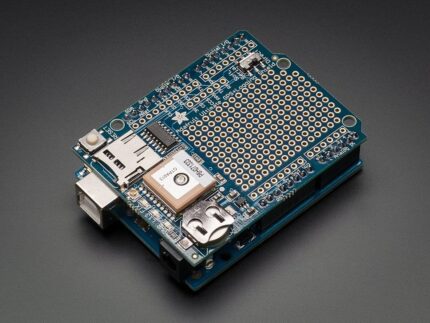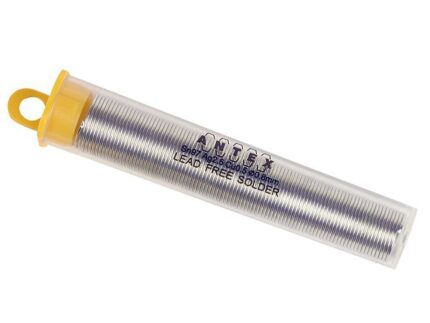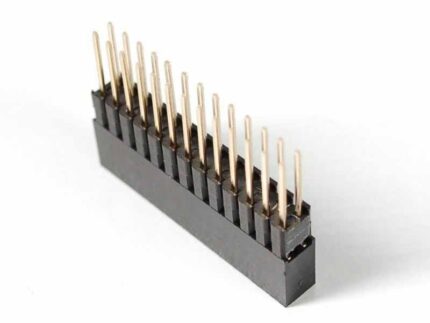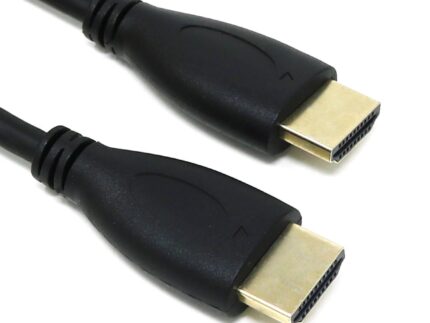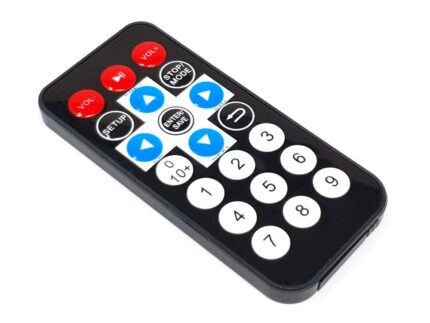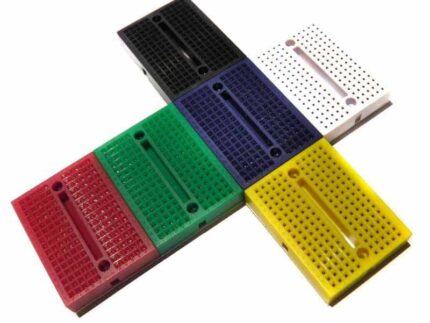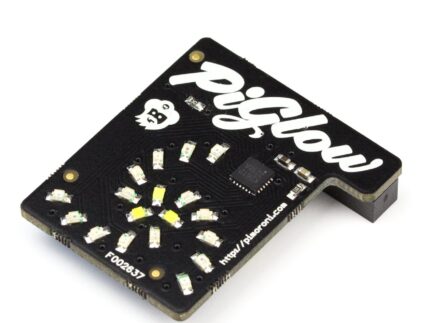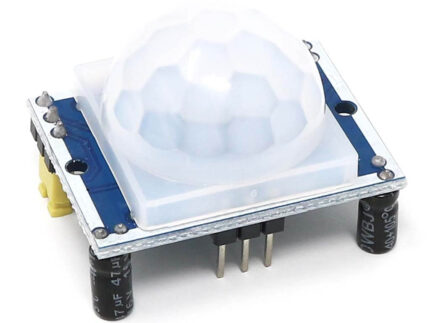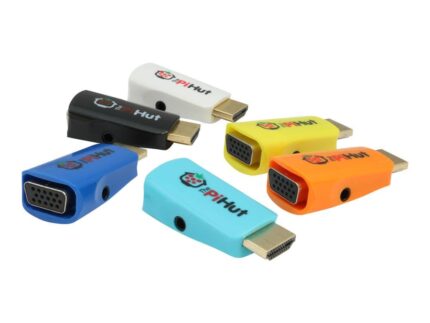Adafruit 1.2″ 4-Digit 7-Segment Display w/I2C Backpack – Red
What’s better than a single LED? Lots of LEDs! A fun way to make a numeric display is to use a 4-digit 7-segment display. LED matrices like these are ‘multiplexed’ – so to control all the seven-segment LEDs you need 14 pins. That’s a lot of pins, and there are driver chips like the MAX7219 that can control a matrix for you but there’s a lot of wiring to set up and they take up a ton of space. Here at Adafruit we feel your pain! After all, wouldn’t it be awesome if you could control a matrix without tons of wiring? That’s where these adorable LED matrix backpacks come in. We have them for a variety of 8×8 and 7-segment displays. They work perfectly with the displays we stock in the Adafruit shop and make adding a bright display trivial.
The backpacks use a driver chip that does all the heavy lifting for you: They have a built in clock so they multiplex the display. They use constant-current drivers for ultra-bright, consistent color (the images above are photographed at the dimmest setting to avoid overloading our camera!), 1/16 step display dimming, all via a simple I2C interface. The backpacks come with address-selection jumpers so you can connect up to eight 7-segments (or a combination, such as four mini 8×8’s and four 7-segments, etc) on a single I2C bus.
Since this display has two LEDs per segment in series we need to power from 5V, even when using 3V logic. However, the chip really prefers the IO signals to be close to the power voltage. Our new version of the backpack now has level shifters and a small boosting converter, so you can use 3.3V or 5.0 power and data and still get the nice bright LEDs.
The product kit comes with:
- A fully tested and assembled LED backpack
- Ultra-bright 4-digit 1.2″ tall red seven-segment display
- 5-pin header
A bit of soldering is required to attach the matrix onto the backpack but its very easy to do and only takes about 5 minutes.
Of course, in classic Adafruit fashion, we also have a detailed tutorial showing you how to solder, wire and control the display. We even wrote very nice libraries for the backpacks so you can get running in under half an hour, displaying numbers on the 7-segment for either Arduino or Raspberry Pi. If you’ve been eyeing matrix displays but hesitated because of the complexity, this is the solution you’ve been looking for!
Revision History:
- As of June 30, 2023 – this kit has revised the 7-segment backpack. It now has a 5V boost converter plus stemma QT ports. We’ve also updated this PCB with Adafruit Pinguin to make a lovely and legible silkscreen.
Specifications
- 50mm/2″ wide
- 120mm/4.7″ long
- 13mm/0.5″ high
- This board/chip uses I2C 7-bit addresses between 0x70-0x77, selectable with jumpers.
Resources
- Product Tutorial

